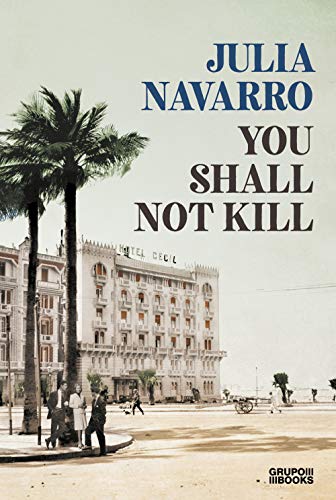You Shall Not Kill
Madrid, 1942. After Franco seizes power, childhood friends Fernando, Eulogio, and Catalina inherit a Spain marked by hate, cruelty, and greed. Whether Republican or Nationalist, their fathers refuse to take responsibility for the conflict that pitted Spaniard against Spaniard. As the Catholic Church looks on, racketeers prey upon society, while Franco’s fascists carry out mass arrests and executions. Among their victims is Fernando’s father whose murder sets his son into a tailspin of retribution, forcing him to flee abroad and abandon his beloved mother. Fernando has pledged himself to Catalina, and although she is pregnant by Marvin, an American poet, he takes her to Alexandria so that she can track down the father of her daughter, Adela. In Alexandria, Fernando becomes part of a group of resistance fighters and, together with a mysterious femme fatale, aids the victims of the Third Reich. At the end of World War II, he and Catalina settle in Paris, since they each harbor a secret, which prevents them from returning home to Spain. It takes another generation—Adela—to lay to rest the vicious cycle of injustice and reprisal set into motion by Franco’s tyranny.
A story of epic proportions and a large cast of characters, rich in wartime horror and tragic incident, You Shall Not Kill vividly describes Madrid in the aftermath of the Spanish Civil War. Navarro’s female protagonists—a trio of strong, devoted mothers—and her principal antagonist—the perverse, stubborn Catalina—are remarkable creations. When the setting changes to Nazi-occupied Africa and Europe, the action proceeds at such a breathtaking pace, it sometimes detracts from the depth of the character development. Still, the story remains riveting, concealing the scandal at the heart of the plot until all is revealed in a sensational finale.










